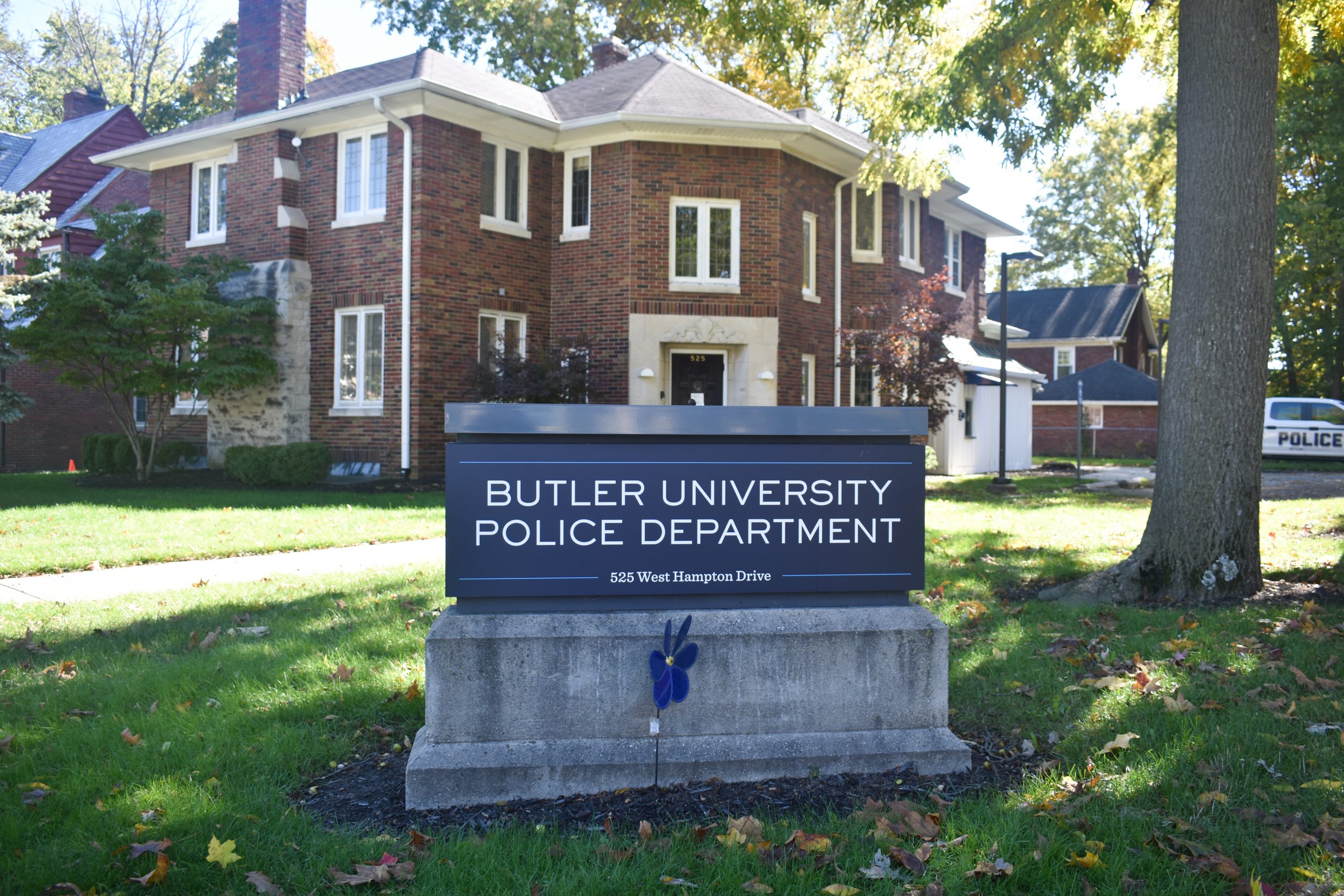The advisory board for the Butler University Police Department releases report results on Nov. 18. Photo by Lauren Jindrich.
ELLIE ALLEN | EDITOR-IN-CHIEF | emallen2@butler.edu
FRANCIE WILSON | DIGITAL MANAGING EDITOR | fwilson@butler.edu
HENRY BREDEMEIER | MANAGING EDITOR | hbredeme@butler.edu
Quotes from the anonymous report will be referred to using the attributes given to them in the report.
After over a year of reviewing the Butler University Police Department, the advisory group commissioned by President James Danko released results and recommendations for improving policing on campus on Nov. 18. Potential policing changes include implementing body-worn cameras, establishing an oversight board and developing a comprehensive and culturally responsive mental health initiative.
The advisory group — made up of Butler faculty, staff, students, alumni and community members — commissioned Black Onyx Management to conduct an analysis of the community’s view on BUPD. Black Onyx Management interviewed 52 members of the Butler community. They also sent a survey, which more than 1,200 students, faculty, staff and neighbors responded.
The results of this research found that students generally feel safe on campus, but students of color are less likely to view BUPD as fair and transparent. A Black male faculty member said in an interview conducted for this report that students of color have expressed concerns about safety to him.
“If they come late at night on campus, they are wearing a hoodie, they are carrying a pizza, BUPD stops them, asks them what they are doing here,” the faculty member said in the report. “So how do you recruit non-white students to a primarily white serving institution when those students do not have the incentive to come here because they are not treated like everyone else?”
Results also found that community members were less likely to report sexual assaults or hate crimes. The same Black faculty member said in the report he has noticed a feeling of inequality in BUPD’s policing.
“Not everyone feels equally protected at Butler … from what I know also in this campus is that women on this campus, particularly, do not feel that BUPD is really looking out for them when it comes to sexual assault,” the faculty member said in the report.
A white male RA on campus also said in the report he avoids interacting with BUPD when possible due to the experiences he has had with officers.
“As student leaders, we feel powerless,” the RA said in the report. “We feel that we have to put up with these antics, since we know that nothing will come out of it if we report it. We have to come to expect that officers will not respond in a professional manner.”
The general sentiment from the community was that Butler should provide alternatives to policing but BUPD should not be defunded or abolished. A potential alternative to policing that the community supported was mental health professionals responding to mental health calls. In the report, a BUPD officer who was interviewed said that separating mental health calls from BUPD could be beneficial.
“Certain aspects of our jobs maybe just should not be handled by us, especially within mental health,” the officer said in the report. “If something can come out of this that would be productive in terms of handling those situations without law enforcement being involved, I could see some positives coming.”
After receiving the results, the advisory board presented recommendations for policing improvements to Danko. BUPD Chief John Conley said BUPD is striving to improve how students are served.
“I want to thank the Advisory Group for the work they put into developing this report and set of helpful recommendations, some of which we are already implementing,” Conley said in the announcement.
The Butler Collegian will continue to update this story.



